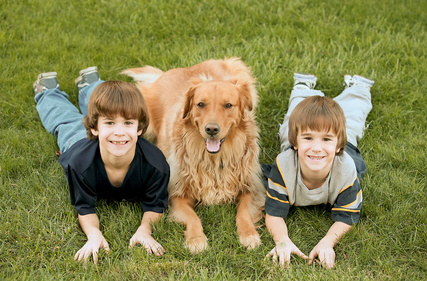01/09/2012

Set a good example
Psychologists often talk about the importance of modelling for children to learn appropriate behaviours, but what do we actually mean by that?
Also known as observational learning, the term modelling was first described by Albert Bandura in 1977 as part of his Social Learning Theory, developing on earlier learning theories by adding a social component:
"Learning would be exceedingly laborious, not to mention hazardous, if people had to rely solely on the effects of their own actions to inform them what to do. Fortunately, most human behaviour is learned observationally through modeling: from observing others one forms an idea of how new behaviors are performed, and on later occasions this coded information serves as a guide for action." Albert Bandura (1977)
Children identify with people whom they spend time with and feel closest to such as parents, peers, teachers and other important people in their lives. They are influenced by and learn from these ‘models’, taking on the behaviours, attitudes or beliefs that they see. Parents often worry that another child may be a ‘bad influence’ on their child but it is also worth examining the influences within the home.
We have all seen that young children seem to be primed to model parental behaviours from a very young age. We often see them making pretend phone calls, imitating tones of voice or copying household chores. The important thing to remember is that children will not only acquire physical skills in this way, but will also learn less concrete skills too such as how we manage our emotions, how we deal with disagreements and conflict or how we show respect to others. For example, if a parent manages frustration by becoming angry, shouting or even throwing things then it is likely that their child will react in the same way when things do not go their way. Conversely, if a parent talks politely to their child, shows them respect and avoids causing humiliation, they are modelling behaviours which the child is also likely to take with them when outside the home.
It is however easy to get caught up in your own emotions at times as a parent and forget that children are constantly watching and learning from us. It is also easy to assume that our genes will inevitably lead to our children having similar issues as us no matter how we behave. We now know that this is not the case and if an anxious parent for example can take the time to think about how they model managing that anxiety in front of their children, they will be providing them with a helpful template to follow. In short, how we behave in front of our children will teach them far more than any talks or lectures about behaviour ever will.